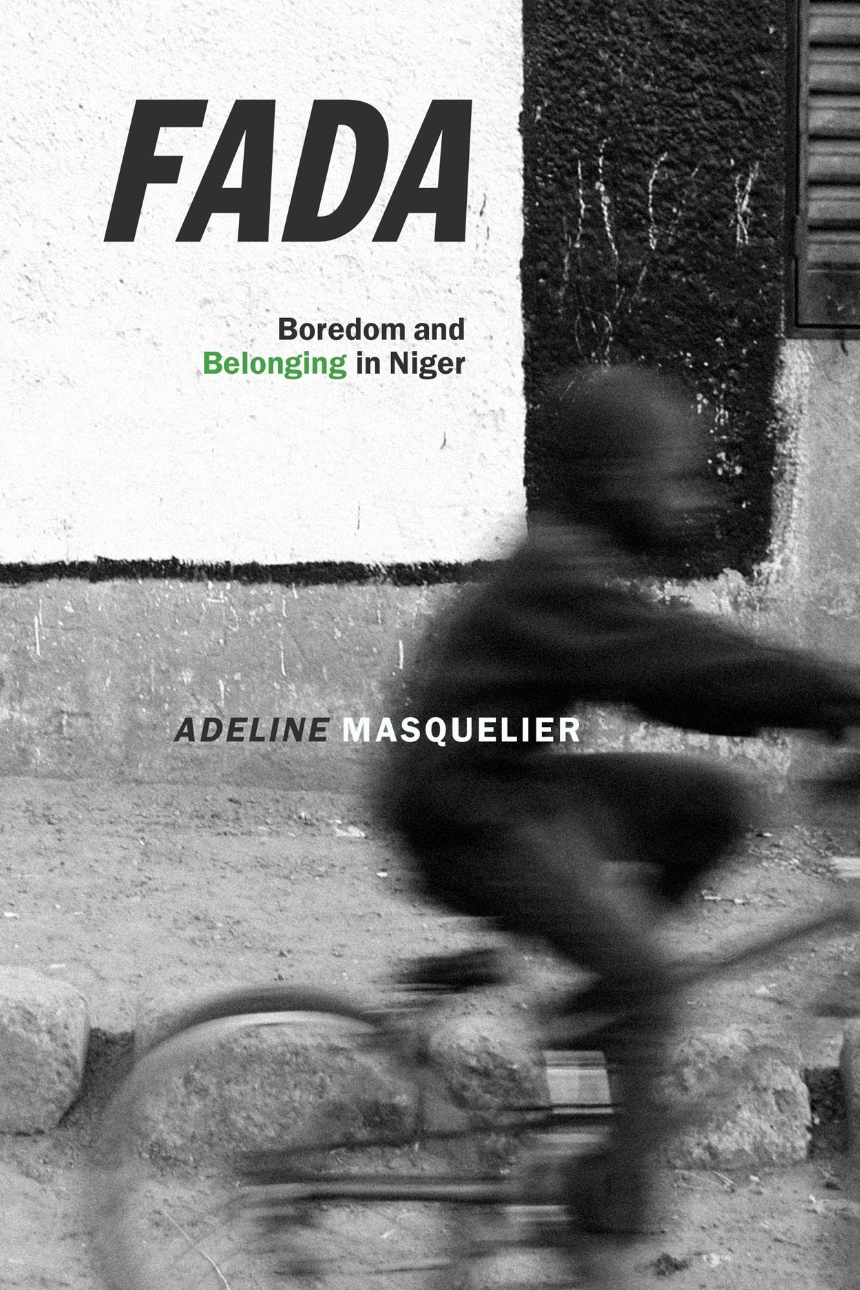Fada
Boredom and Belonging in Niger
Niger most often comes into the public eye as an example of deprivation and insecurity. Urban centers have become concentrated areas of unemployment filled with young men trying, against all odds, to find jobs and fill their time with meaningful occupations. At the heart of Adeline Masquelier’s groundbreaking book is the fada—a space where men gather to escape boredom by talking, playing cards, listening to music, and drinking tea. As a place in which new forms of sociability and belonging are forged outside the unattainable arena of work, the fada has become an integral part of Niger’s urban landscape. By considering the fada as a site of experimentation, Masquelier offers a nuanced depiction of how young men in urban Niger engage in the quest for recognition and reinvent their own masculinity in the absence of conventional avenues to self-realization. In an era when fledgling and advanced economies alike are struggling to support meaningful forms of employment, this book offers a timely glimpse into how to create spaces of stability, respect, and creativity in the face of diminished opportunities and precarity.
Reviews
Table of Contents
Introduction
One / Waiting for Tea
Two / The Writing on the Walls: Ma(r)king the Place of Youth
Three / Snapshots: Bringing (Invisible) Women into View
Four / Hip-Hop, Truth, and Islam
Five / Keeping Watch: Bodywork, Street Ethics, and Masculinity
Six / Dress and the Time of Youth
Seven / Zigzag Politics: Tea, Ballots, and Agency
Conclusion
Acknowledgments
Glossary
Notes
References
Index
One / Waiting for Tea
Two / The Writing on the Walls: Ma(r)king the Place of Youth
Three / Snapshots: Bringing (Invisible) Women into View
Four / Hip-Hop, Truth, and Islam
Five / Keeping Watch: Bodywork, Street Ethics, and Masculinity
Six / Dress and the Time of Youth
Seven / Zigzag Politics: Tea, Ballots, and Agency
Conclusion
Acknowledgments
Glossary
Notes
References
Index
Awards
Royal Anthropological Institute: Amaury Talbot Prize
Honorable Mention
African Studies Association: Best Book Award
Finalist
